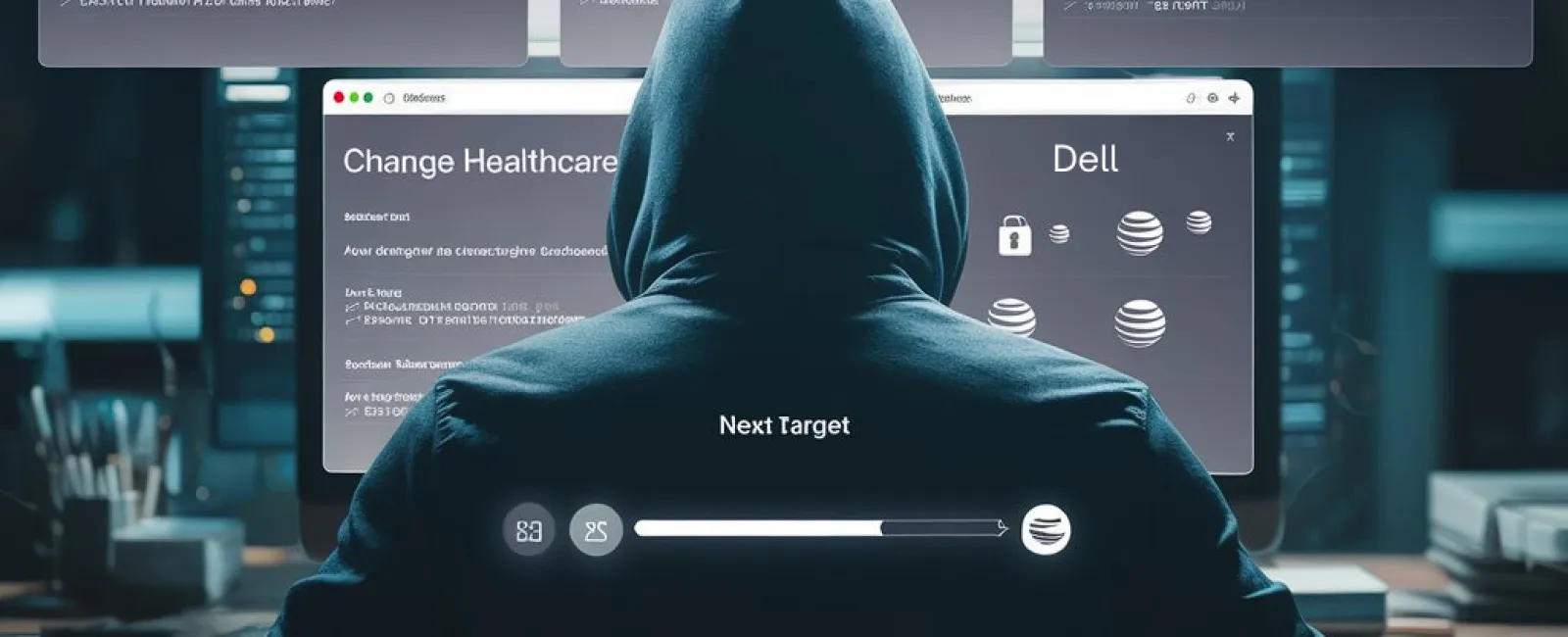November 04, 2024
This year has seen some of the most significant data
breaches, with hackers going after various industries. From healthcare giants
to tech platforms, all business types have been affected. These breaches show
how important it is for businesses of all sizes to step up their security game
and stay alert. These incidents underscore the urgent need for any business
type or size to enhance its security measures and increase awareness about
cybersecurity threats. While major corporations often make headlines, small to
midsize businesses (SMBs) face the same risks, often with fewer resources to
combat them.
Here are the top five data breaches of 2024 and what they
mean for your business.
1. National Public Data Breach
Earlier this year, a hacking group said they had stolen 2.7
billion personal records from a background checking and public data site. The
stolen data includes sensitive information such as phone numbers, Social
Security numbers, mailing addresses, and email addresses. Some of the stolen
information has already been sold online, causing concerns about the potential
for identity theft.
While the accuracy of the reported figures is uncertain,
this breach underscores the importance of staying vigilant.
What You Can Do:
Monitor your financial accounts: Check your credit
report and bank and credit card statements regularly for unusual
activity.
Freeze your credit: Consider freezing your credit to
prevent unauthorized accounts from opening. You can temporarily lift the freeze
when needed.
2. Ticketmaster's Security Breach
A significant breach at Ticketmaster compromised the
personal and financial data of over 560 million customers. Hackers infiltrated
the company's database, stealing names, email addresses, phone numbers, and
payment details. The breach revealed glaring gaps in the company's security
infrastructure, leading to unauthorized transactions and identity theft for
many victims. This incident also added to Ticketmaster's parent company, Live
Nation's ongoing legal troubles.
Lessons for Your Business:
- Regularly
audit your cybersecurity infrastructure to identify vulnerabilities.
- Encrypt
sensitive customer data to minimize potential exposure.
3. Change Healthcare Ransomware Attack
In February, Change Healthcare, a major company in the
healthcare industry, became a victim of a ransomware attack, exposing personal
information of over 145 million individuals. Compromised data includes names,
Social Security numbers, and medical records. This attack highlights the
results of ransomware, particularly in industries handling sensitive
information.
Takeaway for SMBs:
- Ransomware
prevention is critical. Invest in endpoint detection and response (EDR)
tools and regularly back up your data.
- Have
employees participate in security awareness training to recognize phishing
attempts, which are often the entry point for ransomware.
4. AT&T's Customer Data Breach
In March, AT&T reported a breach that exposed the
personal information of approximately 73 million current and former customers.
The stolen data included Social Security numbers, account details, and
passcodes, some dating back to 2019. This breach is part of a troubling trend,
following another AT&T breach in 2023 that affected 9 million users. The
company now faces potential class-action lawsuits and increased scrutiny over
its data protection practices.
How You Can Stay Protected:
- Ensure
applications and operating systems are regularly updated and patched to
prevent known vulnerability exploitation.
- Use
multi-factor authentication (MFA) for all critical accounts.
5. Dell's Reseller Portal Breach
In May, Dell experienced a breach when a hacker used a
brute-force attack to access a reseller's client portal. The attack exposed 49
million records, including customer names, email addresses, payment
information, and account details. This incident raised serious questions about
Dell's security measures, prompting the company to commit to overhauling its
cybersecurity protocols.
Actionable Steps for Your Business:
- Limit
access to sensitive systems to only those who need it.
- Implement
strong password policies and consider using password managers to enhance
security.
What Does This Mean for You?
If your data has been exposed in a breach, immediate action
is essential:
- Freeze
your credit: This is one of the most effective ways to prevent
identity theft.
- Check
your accounts: Monitor your financial accounts and online profiles for
suspicious activity.
- Use
tools to check your exposure: Websites like Have I Been Pwned
can help you identify whether your email or other data has been
compromised.
What Does This Mean for Your Business?
Cyber thieves are increasingly targeting small and
medium-sized businesses (SMBs), even though most high-profile breaches have
affected major companies. Due to their limited resources, SMBs are often easy
targets. However, the impact of a security breach can be severe, leading to
financial losses and damage to reputation.
To protect your business, consider taking the following
steps:
- Invest
in cybersecurity tools by implementing firewalls, antivirus and endpoint
protection software, and intrusion detection systems to protect your
operations.
- Provide
training for your team, ensuring employees participate in security
awareness sessions to learn best practices for passwords, multi-factor
authentication, and recognizing phishing scams.
- Prepare
for potential breaches by developing a clear plan for identifying,
containing, and mitigating cyberattacks.
By learning from the missteps of larger organizations, SMBs can take proactive steps to protect their data, their customers, and their future.
Protect Your Business
With A FREE Security Risk Assessment
If these stories have you thinking about your own vulnerabilities,
that's a good thing. The best defense is a proactive one. We're offering a FREE
Security Risk Assessment to evaluate your network for potential risks. Our
experts will assess your system's vulnerabilities, help you patch the holes and
ensure your business is fortified against attacks.
Don't wait until you're the next headline - get your FREE Security
Risk Assessment today! Click
here to schedule or call our office at (630) 405-0749.




